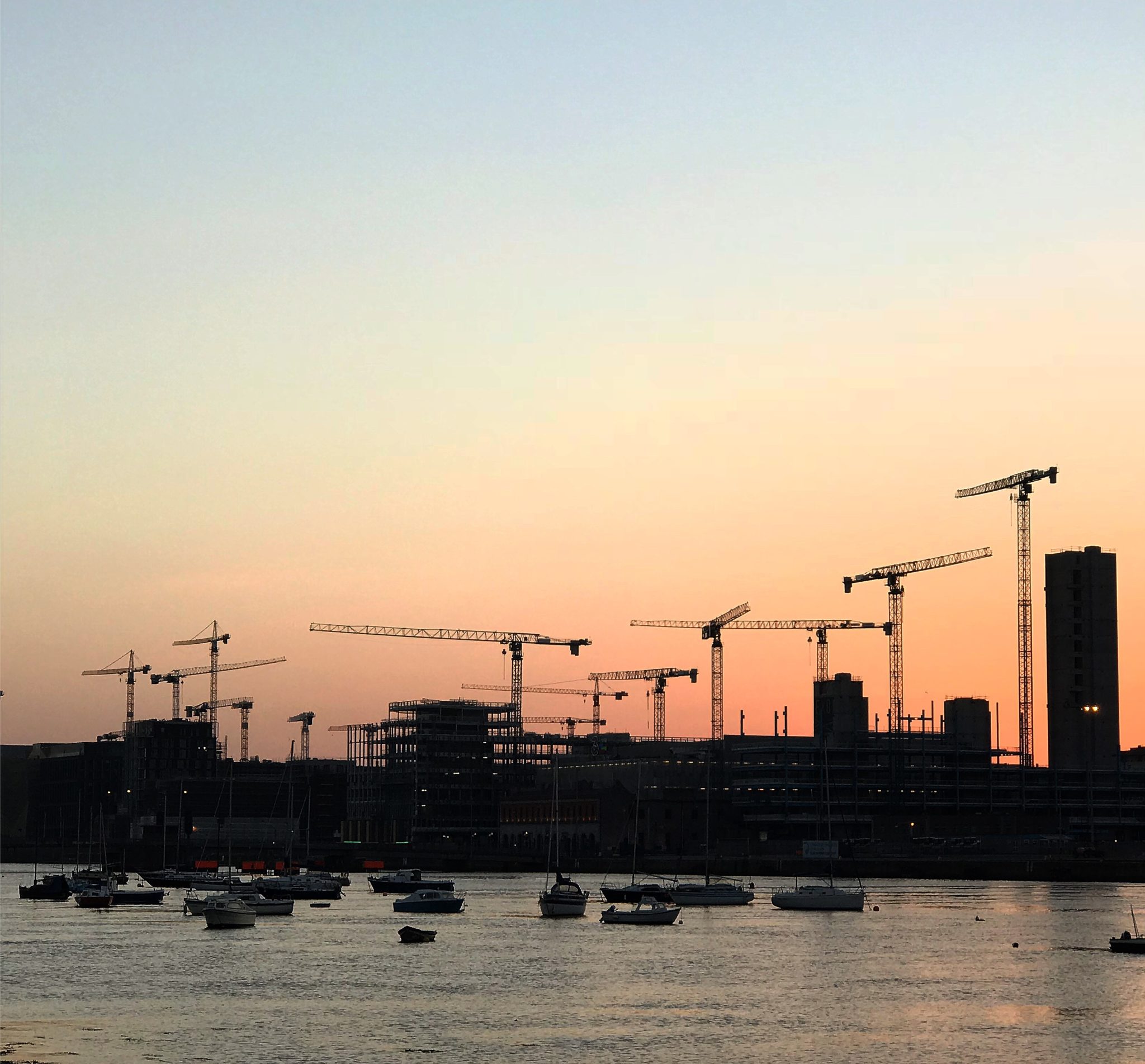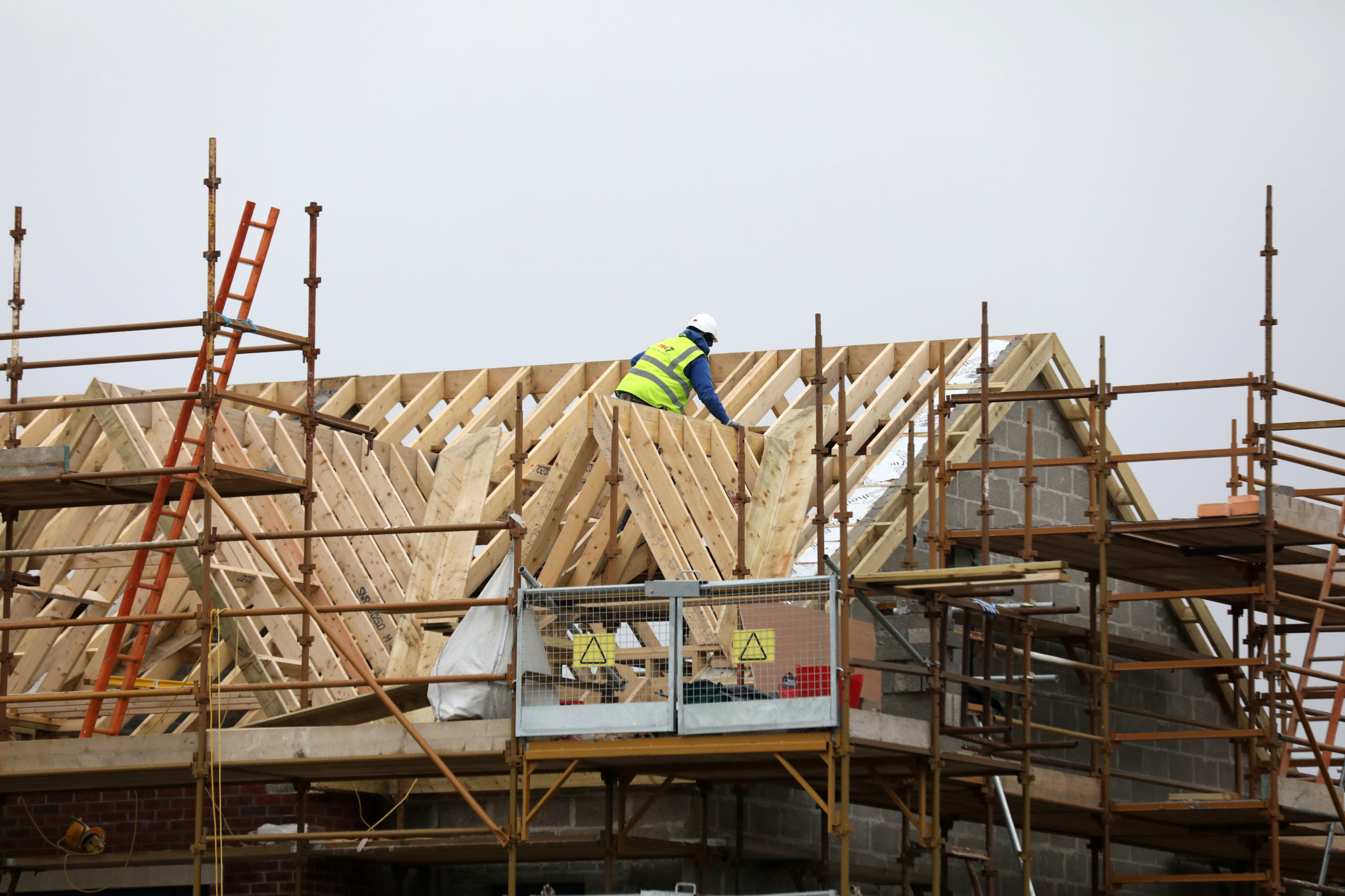The Health Minister says most construction work will stop during the COVID-19 lockdown.
The Government will publish a full list of the workers it classes as essential later this morning.
As of midnight, everyone in Ireland has been ordered to stay at home except in limited circumstances in a bid to slow the spread of the coronavirus.
The lockdown will remain in force until Easter Sunday at the earliest, with people only allowed out to shop for essential items, pick up medicine, attend medical appointments and exercise within 2km of their homes.
People are not allowed to go to work unless their job is classed as essential and it can’t be done form the home.
 The Dublin Docklands cranes are silhouetted as the sun sets behind the city, 28-06-2019. Image: Leon Farrell/RollingNews
The Dublin Docklands cranes are silhouetted as the sun sets behind the city, 28-06-2019. Image: Leon Farrell/RollingNews
This morning, Health Minister Simon Harris said construction sites will be shut down – unless they are building something that is essential to the pandemic response.
“For example if we were to decide that we need to put in modular units or adapt a hotel or build things that we need to actually get through this pandemic – of course that would be essential,” he said.
“But in general, the message is really simple here. I need everyone in Ireland to stay at home.
“You should only be leaving your home if you are absolutely doing something that is essential to getting us through this pandemic and keeping our people safe and well.”
 Building workers on a housing estate in Naas Co Kildare | Image: Eamonn Farrell/RollingNews.ie
Building workers on a housing estate in Naas Co Kildare | Image: Eamonn Farrell/RollingNews.ie
In a statement, the Construction Industry Federation said it was now calling on all its member to secure construction sites immediately.
It urged site operators to inform Gardaí ahead of time before going in to secure the site.
Minister Harris said the essential list to be published will include health workers, civil servants who can’t work from home, utility providers, transport workers and people involved in the food supply chain.













